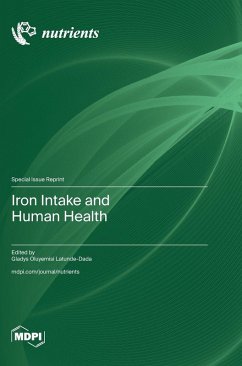
Energy Intake and Body Mass in Children with and without DCD
We must not ignore energy intake in Developmental Coordination Disorder
Versandkostenfrei!
Versandfertig in 6-10 Tagen
36,99 €
inkl. MwSt.

PAYBACK Punkte
18 °P sammeln!
Childhood overweight and obesity status is a serious health problem leading to adverse outcomes, such as cardiovascular diseases. The consequences of this condition are more severe for those with Developmental Coordination Disorder (DCD) due to the nature of the disorder. Previous research has shown that children with DCD are more physically inactive than their non-DCD peers which contributes to their increased prevalence of overweight and obesity status. Knowing it is the positive imbalance of energy intake with energy expenditure that translates into adiposity, researchers should examine the...
Childhood overweight and obesity status is a serious health problem leading to adverse outcomes, such as cardiovascular diseases. The consequences of this condition are more severe for those with Developmental Coordination Disorder (DCD) due to the nature of the disorder. Previous research has shown that children with DCD are more physically inactive than their non-DCD peers which contributes to their increased prevalence of overweight and obesity status. Knowing it is the positive imbalance of energy intake with energy expenditure that translates into adiposity, researchers should examine the energy intake side of the equation in DCD populations. So, how is energy intake related to body mass in children with DCD? Well, see for yourself!












